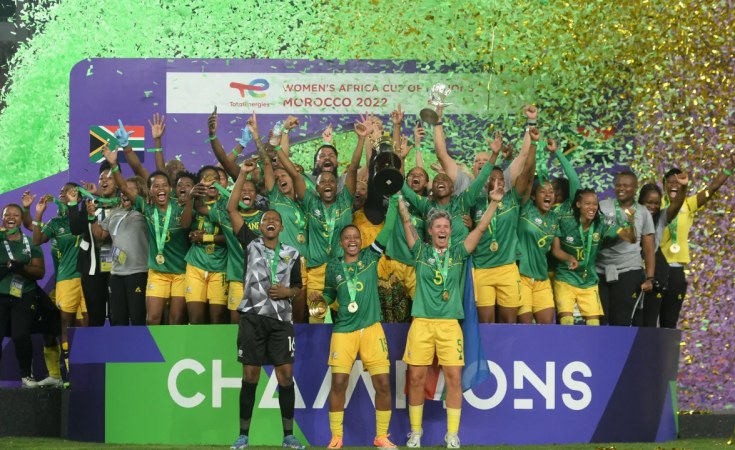Harare — No matter where you are in the world, women and men do not have the same basic rights. African countries are no exception, and are still largely affected by gender inequalities in the social, economic and political spheres, according to the Gender in Geopolitics Institute, a think tank that places the concept of gender at the heart of the analysis of international relations.
Banyana Banyana's victory at the Women's Africa Cup of Nation (WAFCON) brought into sharp focus the gender disparities that still exist in South Africa., even though the country's Constitution guarantees that no person should be discriminated against based on their sex or gender. So what could be the problem, really?
This is not the first time there has been public debate around equal pay, yet change has been happening at a snail's pace if there has been any at all.
It's been reported that the South African women's football squad experienced severe underpayment and occasionally no payment at all, a problem attributed to unfair gender norms.
In the past, Banyana Banyana had always come close, but always fell short, having lost five finals prior to July 23's match against Morocco.
But now that they have broken their long-standing curse, on their sixth attempt, to win the 2022 Women's Africa Cup of Nations, the South African Football Association (Safa) is awarding the players R400,000 in incentives.
Some have made comparison to the R520,000 that the national men's side, Bafana Bafana, received in 2019 simply for reaching, but not winning, the Africa Cup of Nations quarterfinals, according to South Africa's state broadcaster. Many have argued that the lack of interest in watching women's sports accounts for the low coverage of these events leading to less advertising and sponsorship.
Sports media is less likely to spend the time and effort covering something if there are no viewers. But this can't be the case anymore as women football is progressively gaining traction.
First, the semi-final between Nigeria and Morocco, played at the Complexe Sportif Prince Moulay-Abdellah in Rabat delivered a record-breaking attendance of over 45,500.
Then the final between Morocco and South Africa beat this stat with at least 50,000 fans in the terraces, making it the most attended WAFCON fixture.
But again, the grievances in sports have been ongoing, and aren't limited to South Africa. For many African countries, sports provide an escape from enduring political, economic and social problems but, as it turns out, these teams are not exempt from those problems either.
We have seen many instances where national team players threaten to strike immediately before a big match event after failing to reach an agreement on incentive payments or after demanding that the bonuses be paid in advance.
A recent example would be when the Super Falcons got into a dispute with the Nigeria Football Federation (NFF) ahead of their third-place play-off at the Women's Africa Cup of Nations (Wafcon) after none of the players received their allocated allowances of over U.S.$10,000 for the wins over Botswana, Burundi and Cameroon.
However, the debate is way bigger and broader than just sports.
Over the years, there have been more economic opportunities, better representation of women in politics along with better healthcare in many places of the world. But it's still a disappointment that South Africa, and the world's gender pay gap still persists. According to Stats SA, in 2022, South Africa had an overall gender gap index score of 0.78, placing it 20th out of 146 countries globally.
The index assesses gender disparities in areas such as economic participation and opportunity, educational attainment, health and survival, and political empowerment. Worldwide, women only make 77 cents for every dollar earned by men, according to the United Nations.
Because women's work is undervalued and women tend to be concentrated in different jobs than men, according to the UN, the persistent salary disparity between men and women continues in all countries and across all industries.
According to recent joint research from the International Labour Organization (ILO) and the World Health Organization, women in the health and care industry experience a wider gender pay gap than in other economic sectors, earning on average 24 percent less than male peers.
When South Africa President Cyril Ramaphosa met the African champions at the Union Buildings in Pretoria he said there was need to give added remuneration to young women that have made South Africa proud.
"We must eliminate the whole process of unequal pay out of our system. When men and women do equal work, the remuneration must be the same. It is unjust, and we cannot continue treating the women in our country in an unjust, unfair way," said Ramaphosa.
Banyana were also named as the women's National Team of the Year and their coach and former Banyana star, Desiree Ellis, was named the Women's Coach of the Year for a third successive time at the 2022 CAF Awards in Rabat, Morocco.
Many women athletes still earn considerably less than they should and what Banyana has achieved may not simply be a win for the team, but for all sportwomen on the continent.


